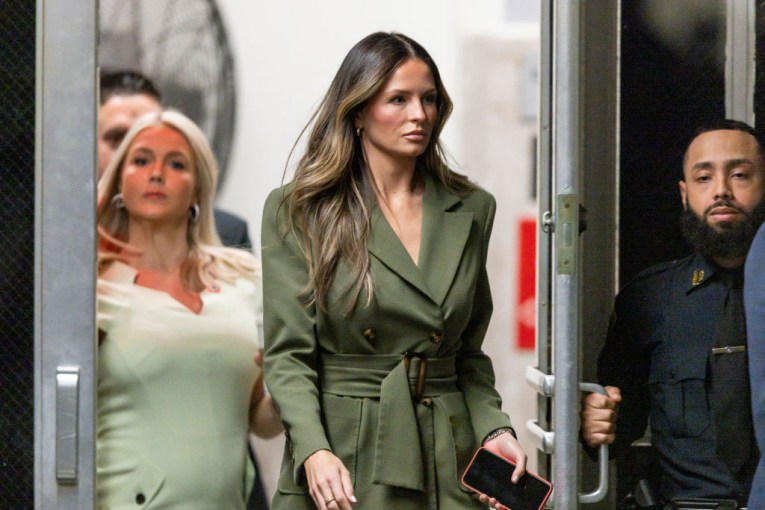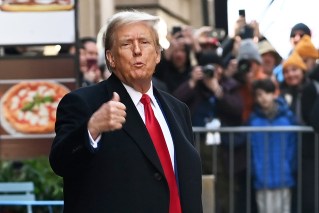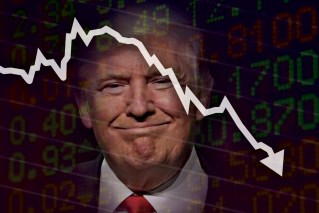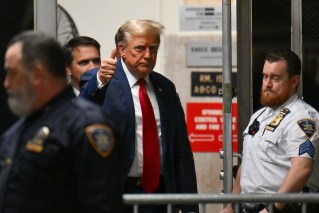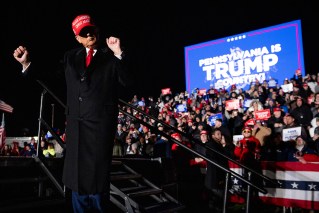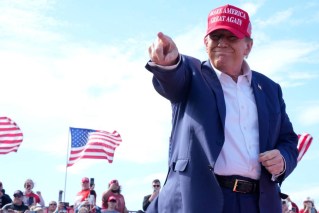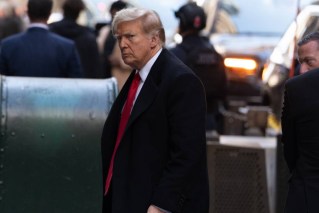The art of appeal: How Donald Trump hoodwinked millions of Americans

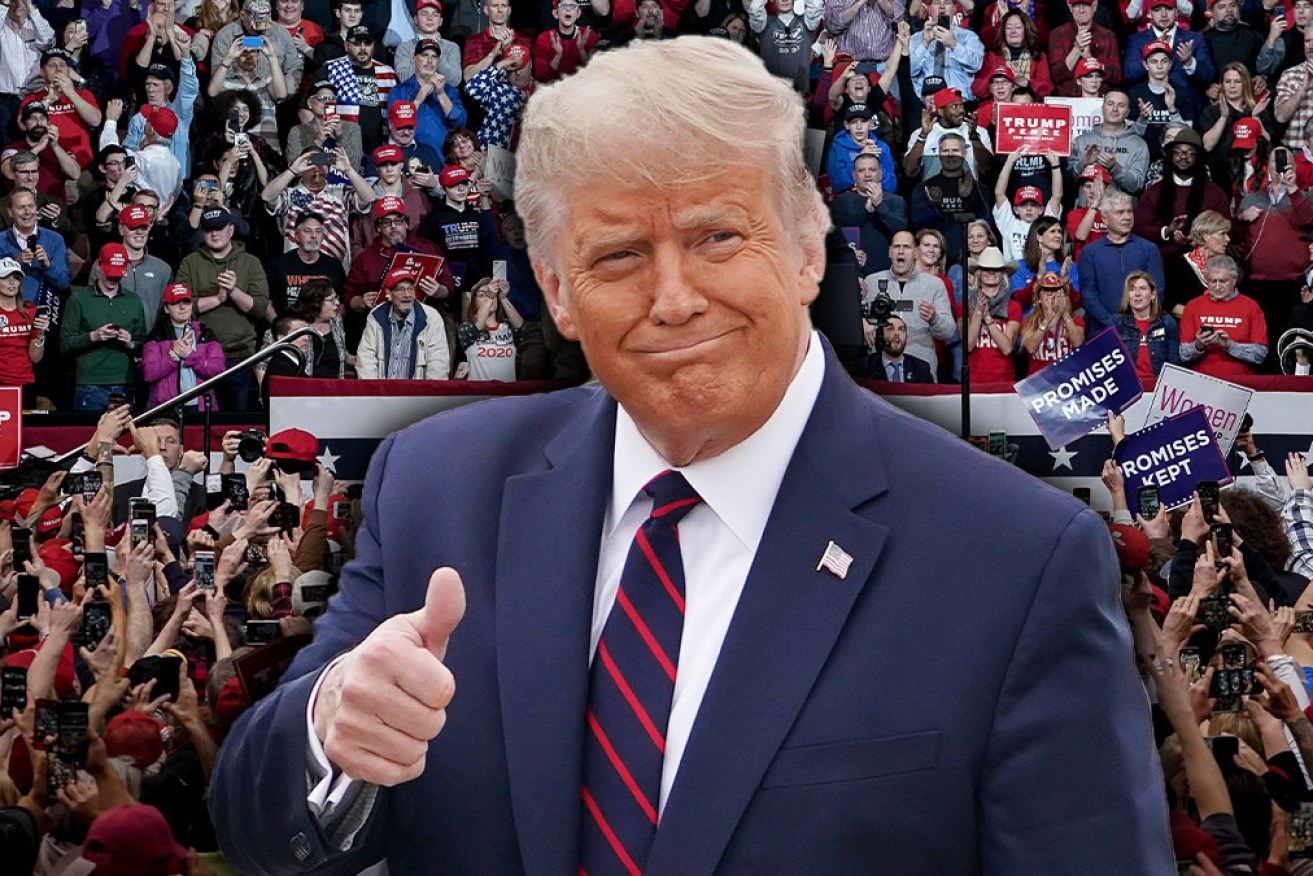
Donald Trump captured the imagination of Americans who had never voted before. Photo: TND/Getty
In the past year in the US, the coronavirus death toll was higher than anywhere else in the world, the economy tanked, and racial tensions simmered at boiling point.
Yet more than 74 million Americans voted for Donald Trump in the 2020 presidential election.
And not only did they vote for him, they adore him.
For many of them, supporting Mr Trump is not just a political preference – it’s an intrinsic part of their identity.

A Trump supporter waves an American flag during the Capitol Hill riot, eyes stinging from pepper spray. Photo: Getty
Not only that, but the 74-year-old has such a strong appeal that people who had never taken an interest in politics before started lining up at polling booths in record numbers.
So, how did he do it?
How did Donald Trump – a real estate billionaire from Queens – mobilise so many Americans, including immigrants and other groups he publicly ridiculed?
There are three main explanations for Mr Trump’s success, said US election analyst and professor at ANU Wesley Widmaier.
“The first is the hollowing out of the middle class,” he said, adding US wages have been flat since about 1980.
“Corporate profits have risen, but wages haven’t.
“Every American is carrying massive amounts of personal debt. You can keep living at a certain standard, but you’re anxious, you’re crushed under debt and under student loans.”
Twenty years ago, US wages were 35 times that of Chinese wages.
In 2018, that multiple was down to just five and would be lower again now.
As a result, many Americans feel they have been left behind by the political elite.
This sense of disenfranchisement grew when Bill Clinton was president in the 1990s, Professor Widmaier said.
That’s when globalisation started accelerating and threatening American jobs.
“Bill Clinton said, ‘We’re going to try to give the people education and the tools they need to thrive in a 21st century economy’,” Professor Widmaier said.
“That all sounds great … and as much as it tries to be progressive with its core message about retraining and upskilling, if you’re in West Virginia and you’ve only ever been a coal miner making $80,000 a year and a politician says we’re going to end coal mining but retrain you, that’s not appealing.
“The Democratic Party’s response to globalisation works, but has this unintended message which says: ‘If you’re not doing well, you better work a bit harder’. But that’s not how society works.”

About 40 million Americans live in poverty, according to official US Census Bureau statistics. Photo: Getty
This combination of stagnant wage growth and the shame of not feeling good enough is a button Mr Trump knows exactly how to push.
Add to that a fear of illegal immigrants stealing jobs and there you have it: A trifecta of insecurities ready to be exploited by a charismatic billionaire.
“As an outsider from New York society, who sees himself denied his full recognition and resents the Manhattan elite, Trump feels looked down upon so he can empathise with those folk and communicate with them,” Professor Widmaier said.
“He’s able to speak to people’s emotions and not worry about the fact checking or reality undermining his claims.”
It’s a view shared by Kim Hoggard, a former adviser to Republican presidents Ronald Reagan and George HW Bush.
“Trump presented himself as anti-politician,” Ms Hoggard told The New Daily.
“It’s his personality and the fact he could do or say anything and people would excuse it because he was saying what a lot of people felt.
“It gave their thoughts, their positions and their prejudices a veil of legitimacy and they felt they were being heard … but all the while, they’ve been lied to by the president.
“They went down the rabbit hole with right-wing news outlets, and QAnon conspiracy theories and other online groups that promote distrust in government.”

An army brimming with hate and fury, Donald Trump’s extremist supporters storm Capitol Hill. Photo: AP
Despite Mr Trump’s active voter base, Ms Hoggard said in reality he was “never that popular” among the general American population.
“He didn’t have a majority popularity rating during the course of his 2016 election, nor during his four years and certainly not in the 2020 election, so he’s never been a popular president,” she said.
“The question is, how did America get to the point where it selected a candidate like Donald Trump?”
To his loyal supporters, the answer to that is obvious.
Now comes their real conundrum: What will we do without him?
